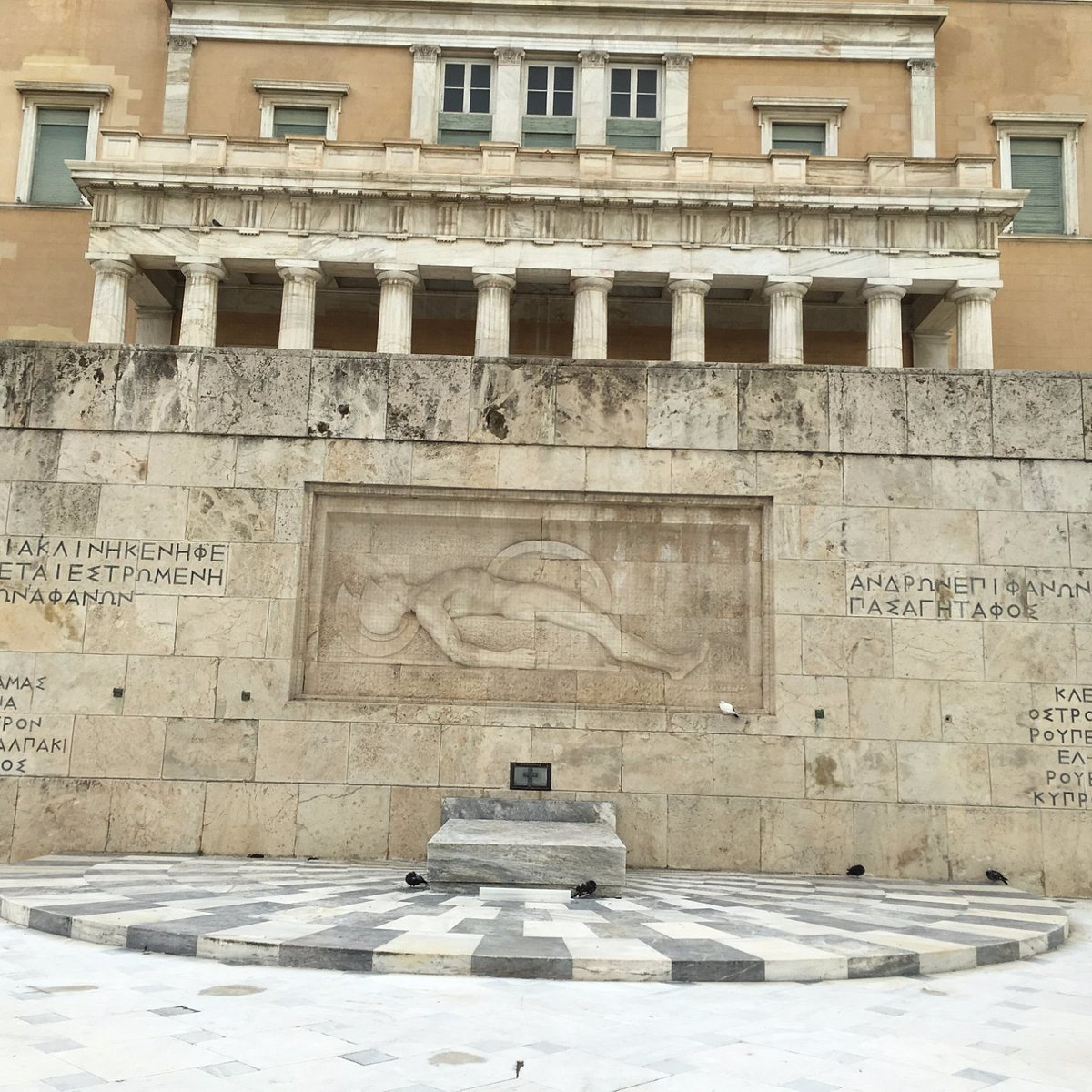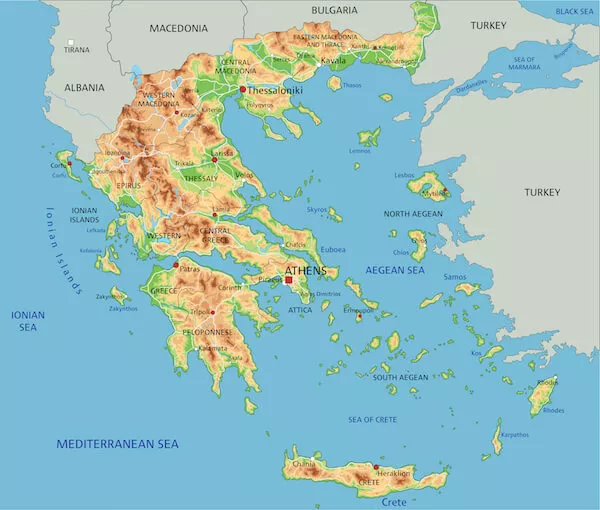International Relations
India and Greece Relations
- 30 Aug 2023
- 9 min read
For Prelims: India and Greece Strategic Partnership, Tomb of Unknown Soldier, The Grand Cross of the Order of Honour
For Mains: Evolution of India-Greece relations, key areas of cooperation between India and Greece under their strategic partnership
Why in News?
Recently, India and Greece have taken a significant step by upgrading their relationship to a strategic partnership. The partnership aims to double trade, enhance defence and security collaboration, and address shared challenges.
- On this occasion, the Greek President Katerina Sakellaropoulou conferred the Prime Minister(PM) of India with “The Grand Cross of the Order of Honour”.
- The Indian PM paid tribute at the ‘Tomb of Unknown Soldier’ in Athens.
What are the Main Areas of Cooperation Under the Strategic Partnership?
- Defence and Security:
- India and Greece agreed to intensify their defence and security cooperation, especially in maritime security, counter-terrorism, cyber security, and the defence industry.
- Decided that there should also be an India-Greece dialogue framework at the level of National Security Advisors (NSAs).
- Maritime Security and Adherence to International Law:
- As leaders of two ancient sea-faring nations with a long-standing maritime outlook, they shared their vision of a free, open and rules-based Mediterranean Sea and Indo-Pacific, in accordance with the law of the sea, in particular the provisions of the United Nations Convention on the Law of the Sea (UNCLOS) and with full respect for the sovereignty, territorial integrity, and freedom of navigation to the benefit of international peace, stability and security.
- Culture and Tourism:
- Both leaders welcomed efforts to promote exchanges in all forms of art.
- They also agreed to encourage joint efforts in preserving and protecting ancient sites and strengthen cooperation within the United Nations Educational, Scientific and Cultural Organization (UNESCO).
- Trade and investment:
- The two countries also aimed to double bilateral trade by 2030. They agreed to explore new opportunities in sectors such as renewable energy, infrastructure, pharmaceuticals, agriculture, and innovation.
- Mobility and Migration Partnership Agreement (MMPA):
- Both leaders agreed that an early finalization of an MMPA would be mutually beneficial, facilitating in particular the free movement of the workforce between the two countries.
- Broad Spectrum of Collaboration:
- Discussions span various domains, including digital payments, shipping, pharmaceuticals, and education.
What is the Tomb of the Unknown Soldier?
- The Tomb of the Unknown Soldier is a war memorial located in Syntagma Square in Athens, Greece.
- It is dedicated to Greek soldiers who lost their lives in various wars.
- The tomb serves as a symbol of remembrance and honour for the sacrifices made by anonymous soldiers.
- It was sculpted between 1930 and 1932 by sculptor Fokion Rok.
What is the Grand Cross of the Order of Honour?
- The Grand Cross of the Order of Honour is the second-highest civilian honour in Greece, after the Grand Cross of the Order of the Redeemer.
- The award was established in 1975 and features the head of goddess Athena on its front side, along with the inscription “ONLY THE RIGHTEOUS SHOULD BE HONORED”.
- The award is given to individuals who have distinguished themselves in the fields of politics, diplomacy, culture, science, or social service, and who have promoted the interests and values of Greece.
How are India's Relations with Greece?
- Historical Linkages:
- India’s contacts with Greece began over 2500 years ago.
- Alexander the Great’s campaign in the 4th century BCE, which reached the north-western part of the Indian subcontinent.
- Diplomatic, trade, and cultural relations between India and Greece were mentioned in Ashoka’s edicts.
- Trading between the Mauryan Kings and Greece is evidenced by coinage and writings.
- Chanakya, in Chandragupta’s Court, records in Arthashastra about the Yavan Ambassador in the Kings’ court named Megasthenes.
- Gandhara art, which flourished in the region of present-day Pakistan and Afghanistan, is believed to be a result of Indian and Greek influences.
- Commercial Relations
- Bilateral trade between India and Greece stood at USD 2 billion in 2022-23.
- India mainly exports aluminum, organic chemicals, fish and crustaceans and iron and steel to Greece, among other things.
- Meanwhile, Greece’s top exports to India are minerals fuels, mineral oils and products, sulphur and aluminium foil.
- India Participated as ‘Honoured Country’ in the 84th Thessaloniki International Fair(TIF), 2019, the largest annual commercial exposition of Greece.
- Political Relations
- Diplomatic relations were established between India and Greece in May 1950. Greece opened its embassy in Delhi in 1950 and India opened its embassy in Athens in 1978.
- Greece has been marked by consistent support to each other on issues of core national interest, such as Kashmir and Cyprus.
- Greece is also favouring United Nation Security Council (UNSC) expansion, with India as a permanent member.
- Defence Relations
- India and Greece's Defence Cooperation accelerated in 1998, which envisages cooperation in areas such as military training, joint exercises, defence industry collaboration, etc.
- Indian Air Force participation in EXERCISE INIOCHOS-23.
- Culture:
- Dimitrios Galanos, a Greek, became the first European Indologist and spent 47 years in India translating many Hindu texts into Greek and compiled a Sanskrit-English-Greek dictionary of over 9000 words.
- A "Dimitrios Galanos" Chair for Hellenic Studies was established at Jawaharlal Nehru University in New Delhi, India in September 2000.
- The Indian Council for Cultural Relations has been offering an annual scholarship for Greek students to study in India.
- Prof. Nicholas Kazanas, a distinguished Greek Indologist, was declared as one of the awardees of the prestigious Padma Shri award on the occasion of the 72nd Republic Day of India in 2021.
- Dimitrios Galanos, a Greek, became the first European Indologist and spent 47 years in India translating many Hindu texts into Greek and compiled a Sanskrit-English-Greek dictionary of over 9000 words.
Key Facts about Greece:
- Greece is a country in southern Europe with a long coastline on the Mediterranean Sea. It is bordered by Albania, North Macedonia, Bulgaria, and Turkey.
- Greece is one of the oldest civilizations in the world and is considered the cradle of Western civilization. It is the birthplace of democracy, philosophy, theater, and the Olympic Games.
- Government: Parliamentary Republic.
- Capital: Athens, National
- Language: Greek
- Currency: Euro
- Major Mountains Ranges: Pindus and the Taurus mountains.
- The longest river in Greece is the river Haliacmon.
- Greece's highest mountain is Mount Olympus.






